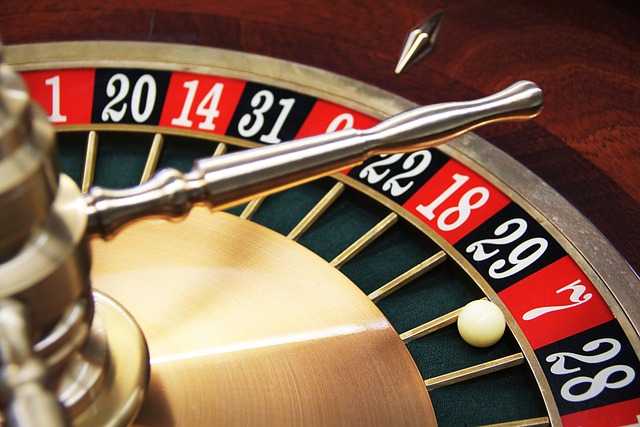The Connection Between Personality Traits and Gambling
Personality traits significantly influence gambling behavior. Certain traits can determine whether someone is likely to engage in gambling or avoid it.
Exploring the Five-Factor Model
The Five-Factor Model (FFM), also known as the Big Five, offers a comprehensive framework to understand personality.
The factors are openness, conscientiousness, extraversion, agreeableness, and neuroticism.
- Openness: High openness often correlates with a preference for novel and complex experiences, including gambling. These individuals might enjoy the variety and unpredictability of gambling activities.
- Conscientiousness: People scoring high in conscientiousness tend to be disciplined and cautious, often avoiding risky behaviors, including gambling. They prefer structured activities with predictable outcomes.
- Extraversion: Extraverts are generally sociable and seek stimulation. They may gravitate towards gambling for its social aspects and excitement.
- Agreeableness: Agreeable individuals prioritize harmony and relationships, often eschewing aggressive gambling behaviors. They might participate in gambling if it fosters social connections.
- Neuroticism: High neuroticism indicates a propensity for emotional instability and stress. Such individuals might gamble to cope with negative emotions or stress, despite potential adverse outcomes.
The Role of Impulsivity and Risk-Taking
Impulsivity and risk-taking are pivotal traits in predicting gambling behavior.
Impulsive individuals act on immediate desires without considering long-term consequences, making them susceptible to gambling.
- Impulsivity: High impulsivity links to frequent gambling and a propensity for problem gambling. These individuals may pursue instant gratification, engaging in high-stakes bets without thorough consideration.
- Risk-Taking: Those with high risk-taking tendencies thrive on the uncertainty and thrill of gambling. They’re more likely to engage in betting, despite the potential for significant losses.
Specific behaviors rooted in impulsivity and risk-taking underline the necessity for targeted intervention strategies.
Understanding these traits can help in tailoring responsible gambling initiatives and support mechanisms, ensuring a balanced approach to gambling activities.
The Psychological Mechanisms Behind Gambling Behavior
Gambling behavior is influenced by various psychological mechanisms that operate on affective and cognitive levels.
Understanding these processes helps to explain why individuals with different personality traits engage in gambling.
Affective Motivation And Gambling Urges
Emotions strongly drive gambling urges. Positive emotions, such as excitement and joy, make gambling more appealing.
For instance, individuals with high extraversion levels seek social interactions and find gambling events stimulating.
On the other hand, negative emotions like anxiety and stress can also motivate gambling behavior.
People high in neuroticism often turn to gambling as a coping mechanism to manage negative feelings.
This affective motivation connects deeply with mood regulation, where gambling temporarily alleviates distress while providing emotional highs.
Cognitive Distortions Among Gamblers
Cognitive distortions play a significant role in gambling behavior. Gamblers often exhibit biased thinking patterns, leading to irrational beliefs about controlling the outcome.
For example, the illusion of control and the Gambler’s Fallacy create a false sense of predictability and success.
Individuals high in openness to experience may be more susceptible to these distortions due to their preference for novelty and complexity.
These cognitive biases can perpetuate gambling by fostering an unrealistic optimism about winning, despite evidence to the contrary.
Recognizing and addressing these distortions is vital for responsible gambling strategies.
Review of Key Research on Personality and Gambling
Examining how personality traits impact gambling behavior reveals crucial insights. Longitudinal studies and individual case studies provide valuable data on this relationship.
Longitudinal Studies and Their Insights
Longitudinal studies track individuals over extended periods to observe changes in gambling behavior in relation to personality traits.
Research by Slutske et al. (2005) identified a strong correlation between high neuroticism and problem gambling.
Over ten years, individuals with high neuroticism showed increased gambling frequency and intensity.
A study by Braverman et al. (2011) monitored online gamblers, noting that those high in extraversion were more likely to engage in social forms of gambling.
In contrast, individuals with high conscientiousness exhibited restrained gambling habits over time.
Case Studies: Personal Accounts and Behavioral Analysis
Case studies offer detailed insights into gambling behaviors linked to specific personality traits.
One analysis by Ledgerwood et al. (2007) examined a group of individuals with high openness engaging in various gambling activities.
Their novelty-seeking behavior often led to rapidly escalating gambling habits and financial troubles.
Another case study by Myrseth et al. (2009) focused on gamblers with high impulsivity.
These individuals frequently displayed a lack of foresight and engaged in high-risk gambling, driven by the need for instant gratification.
Personal accounts revealed that emotional states like stress and excitement frequently influenced their gambling decisions.
Strategies for Managing Gambling Behaviors
Effectively managing gambling behaviors involves tailored strategies that address the underlying personality traits and psychological mechanisms influencing these behaviors.
Psychotherapeutic Interventions

Therapies such as Cognitive Behavioral Therapy (CBT) actively target cognitive distortions and emotional triggers tied to gambling.
CBT helps reframe negative thinking patterns and strengthens coping mechanisms.
Motivational Interviewing (MI) encourages commitment to change by enhancing intrinsic motivation, making it effective for those with high neuroticism or impulsivity.
Psychodynamic Therapy delves into unconscious processes, helping uncover and address hidden emotional conflicts that drive gambling behaviors.
The Effectiveness of Self-help and Support Groups
Self-help and support groups offer communal assistance, allowing individuals to share experiences and strategies.
Groups like Gamblers Anonymous provide a structured environment to discuss challenges and successes, fostering a sense of community and accountability.
Research shows that social support significantly reduces gambling frequency and intensity, especially among extraverts who thrive on social interaction.
These groups also facilitate the development of practical tools for managing urges and preventing relapses.
By employing these strategies, individuals can better manage their gambling behaviors, addressing both the psychological and social dimensions of their gambling tendencies.




